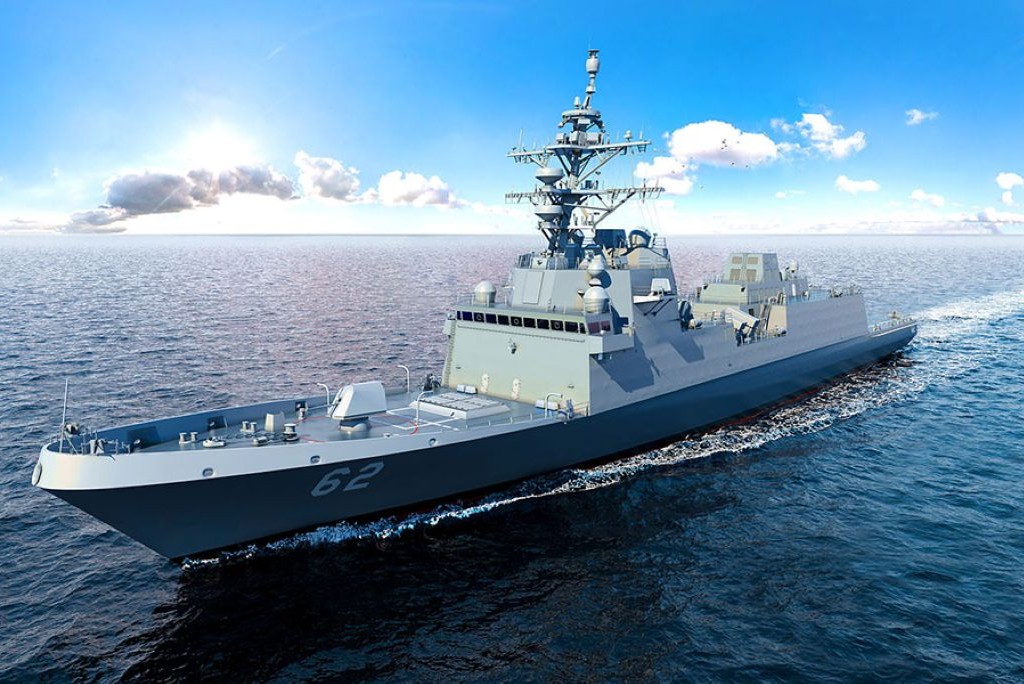US Navy Terminates Constellation Frigate Program Amid Cost Overruns
Program Cancellation and Immediate Impact
The U.S. Navy has announced the cancellation of its Constellation-class frigate program due to ongoing cost escalations and significant delays. However, the Navy intends to proceed with the construction of the first two vessels currently being assembled at the Marinette Marine shipyard in Wisconsin.
Navy Secretary John C. Phelan emphasized the necessity to reshape the fleet construction process. He stated the strategic pivot would involve discontinuing the remaining vessels of the Constellation-class that have yet to begin fabrication.
- Ships Affected: Four vessels under contract with Italian shipbuilder Fincantieri will be scrapped.
Phelan remarked on the collaborative effort between the Navy and its industry partners: “We are terminating the last four ships of the class for the Navy’s convenience, as they have not yet entered production.”
Commitment to Workforce and Future Shipbuilding
Phelan acknowledged the hard work of the shipbuilders in Michigan and Wisconsin. Work on the initial two frigates will continue, as their completion is being assessed to ensure the viability of the workforce and shipyard for future Navy projects.
Fincantieri obtained the contract to manufacture these frigates back in 2020, anticipating an eventual order of 20 ships. The initial design was based on Fincantieri’s FREMM frigate, already operational in several navies including those of France and Italy. Reports indicated that while design progress was initially reported at 88% completion, subsequent alterations initiated by the Navy have significantly delayed that timeline.
Design Complications and Their Consequences
A recent assessment by the Government Accountability Office (GAO) highlighted several design modifications that contributed to the program’s stagnation. Key points include:
- Current Status: Five years post-launch, the project is reportedly only 70% complete.
- Design Transformations: Ongoing redesign efforts have increased the frigate’s weight, exceeding acceptable tolerances. This has led the Navy to consider reducing speed specifications to manage these weight challenges.
Phelan succinctly stated: “The facts are clear. We must deliver the ships our warfighters require in a timeframe that aligns with the evolving threat landscape.”
Future Directions for Fincantieri
In response, Fincantieri expressed optimism for new opportunities, indicating they are pursuing additional contracts for specialized maritime vessels, including amphibious and icebreaking ships.
- Economic Impact: Fincantieri has invested over $800 million in U.S. shipyards, now employing approximately 3,750 individuals across ports in Marinette, Green Bay, Sturgeon Bay, and Jacksonville.
CEO George Moutafis declared, “Our commitment to the U.S. shipbuilding ecosystem reflects our long-term vision to enhance the national maritime industrial base.”
Legislative Support
The decision to terminate the Constellation program has been met with approval from key legislative figures, including Senate Armed Services Committee Chairman Senator Roger Wicker (R-MS). He praised Phelan’s resolution as a “difficult yet necessary” measure to restore accountability within Navy program management.
Wicker noted the importance of retaining Fincantieri, assuring that the company remains integral to the Navy’s future shipbuilding initiatives.
Strategic Outlook
Phelan concluded with an emphasis on the Navy’s imperative to expand its fleet efficiently to address emerging threats. Moving forward, this cancellation aims to enable the expeditious construction of new vessel classes, enhancing operational capabilities to meet the demands of contemporary maritime challenges.
In summary, this decision marks a pivotal shift in Navy procurement strategy, focusing on agility and performance in shipbuilding.





